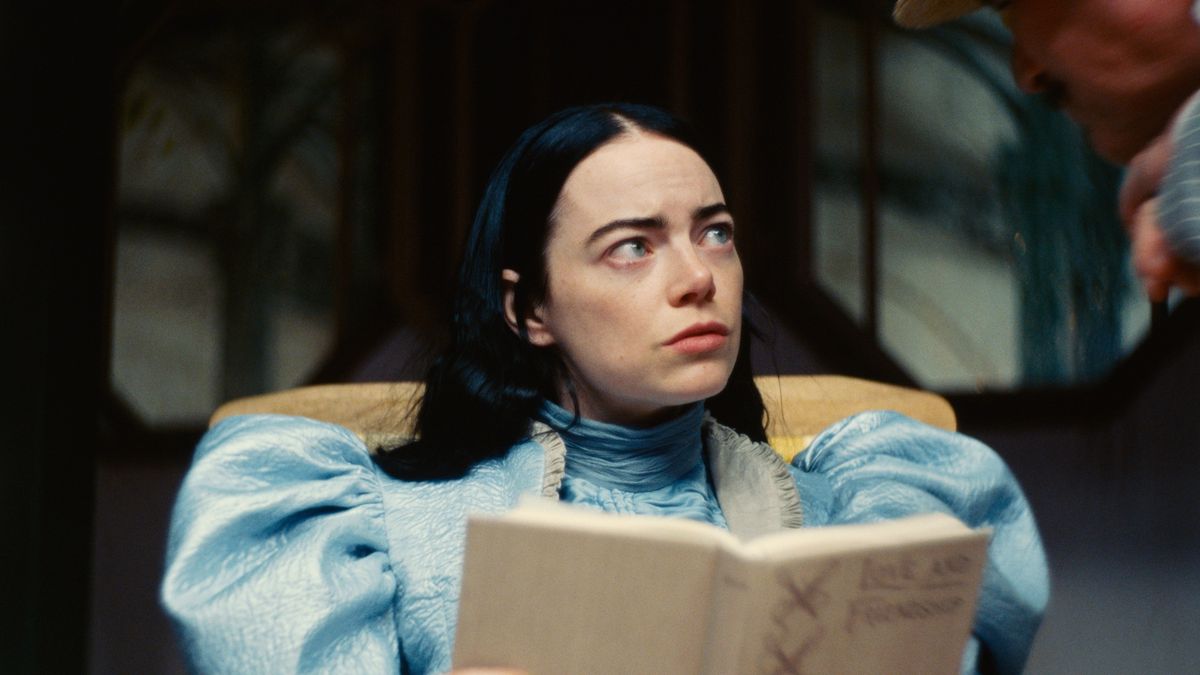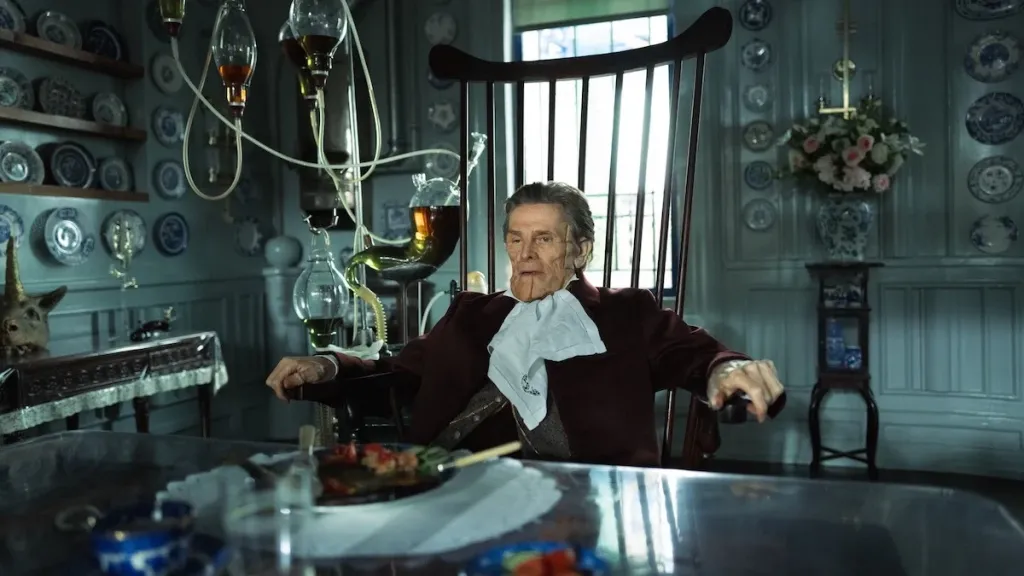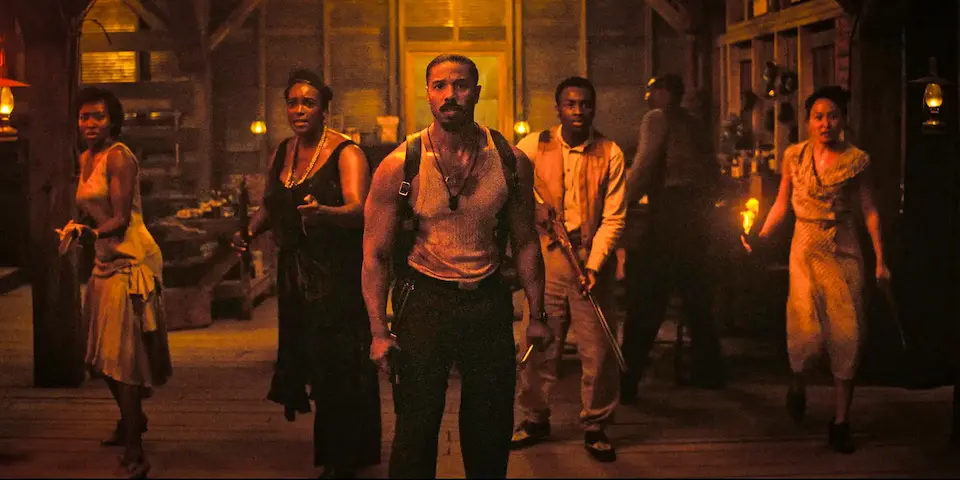“Poor Things”: A Twisted Fantasy by Yorgos Lanthimos
Based on Alasdair Gray’s 1992 novel of the same name, Poor Things has received 11 Oscar nominations and is one of the critics favorites for the award season.

Summary
Dr. Godwin Baxter (Willem Dafoe), an eccentric surgeon, revives a pregnant woman shortly after her suicide. Through an experimental intervention, he manages to implant the brain of the unborn child into the mother’s body. This is how Bella (Emma Stone) comes alive.
Poor Things revolves around Bella’s adventures, in her search for new experiences and emotions, trying to form her own identity and find her purpose in the world.
What worked
The story is set in the Victorian Era, but it allowed itself some elements that create a more dystopian look, especially regarding the production and costume design. This seems a little odd at first, but as the movie is not a proper historical drama, the aesthetic works well. Visually, it’s very pleasing.
The use of color and Jerskin Fendrix’s slightly disturbing music score also contribute to creating this peculiar atmosphere that characterized the movie.
Emma Stone gives a great performance as Bella Baxter, and the rest of the cast does not stay behind.
What Didn’t Work
All the good qualities I have already talked about gave me the impression that the director had something interesting and innovative to say, and that I was eventually going to find out. Unfortunately, I was disappointed. It turns out that the intention was the same of every Hollywood movie in the past five or six years: to make a statement about female empowerment.
Besides the most obvious problem, that is, the fact that the “strong female character who needs to get rid of men to find fulfillment” has become an overused trope, and is therefore, no longer captivating by default, we also have to contemplate other issues.

The story of a woman who is trying to find her place in the world can be interesting, as proved by countless other films, shows, and books. But usually these days, “female liberation” or “female empowerment” in movies is something that a character can only achieve through sex. In fact, the protagonist can only take full “control” of her life by being promiscuous. Leaving aside the fact that this is false, Hollywood’s constant need to send this message is concerning.
Explicit Scenes Should Not Be Gratuitous
Some would argue that sex scenes are an artistic choice, and I agree to a certain extent. Nudity and sex have always been present in films, but the difference today relies on the reason for using these things in the first place. Be it because they wanted to convey a moment of intense vulnerability, a strong emotional connection between characters, or shock us with the crudity of a situation, these scenes used to represent something; they weren’t there just for the sake of it.
Now most movies decide to have sex scenes for no good reason, making them as long and explicit as they can, but adding no further value to the storytelling. And I may add that, living in a world where we are in constant (and sometimes unwilling) exposure to sex-related content (in social media, for example), it doesn’t even work as a means of shocking the audience anymore. At this point, I’m not even disgusted by it; I’m only bored and annoyed.

Poor things is, sadly, just another example of that.
The protagonist lets herself be led by the worst kinds of people. Everyone who approaches her during the course of the movie, from Godwin Baxter, to Duncan Wedderburn to Madame Swiney, has the sole intention of using Bella, and even hurting her. Still, the film decides to present this as an exploration, a path to self-discovery, when the character is clearly under very hurtful influences. That is not liberation. And the lack of judgement on the protagonist’s part is easy to explain: Bella is a child.
Children And Adults Are Not Interchangeable
Let’s go to the base of the story: Godwin Baxter’s experiment consisted of replacing Bella’s brain with the one of her unborn baby. Therefore, Bella’s mental development at the beginning of the movie is that of a baby, even though she has an adult body.
Though the actress we’re seeing on screen is an adult, we’ve been expressly told that the character is not. We see her in the company of other adults, having sex, drinking, and even working in prostitution throughout the film.
In a day and age when production companies and most media outlets are constantly trying to convince us that the topics, and the intention of a film are more important than its production values and overall quality, it’s strange to see a movie like Poor Things getting so much praise.
It seems that, according to Hollywood, childhood and innocence are not things to be protected anymore.



